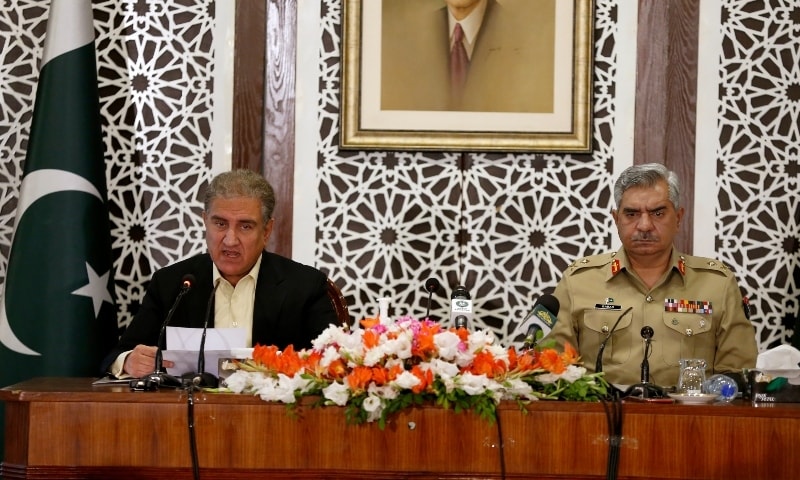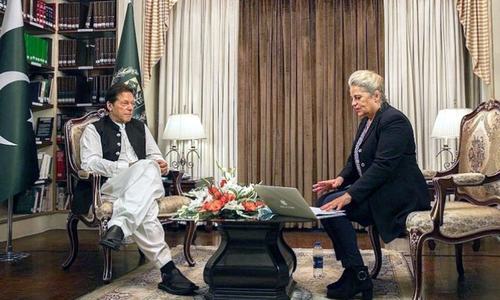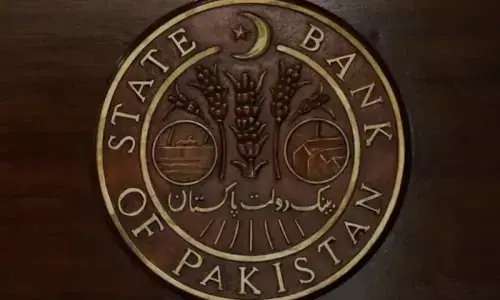Pakistan on Saturday unveiled a dossier containing "irrefutable evidence" of India's sponsorship of terrorism in the country and called on the international community to take notice and make efforts for peace and stability in South Asia.
In a joint press conference with Inter-Services Public Relations (ISPR) Director General Maj Gen Babar Iftikhar in Islamabad, Foreign Minister Shah Mahmood Qureshi condemned the recent ceasefire violations by India across the Line of Control (LoC) and said the purpose of the presser was to show "the real face of India" to the world.
"The state that used to say that it was the world's biggest democracy is [now] becoming a rogue state through its activities. We have information and evidence on the basis of which I can say India is fanning state terrorism. India has prepared a plan to destabilise Pakistan," Qureshi began.
He said that he had been highlighting India's activities at different levels and fora but it was time to take the nation and the world community into confidence because he believed further silence was not in the interest of Pakistan and regional stability.
The foreign minister said Pakistanis had faced 19,130 terrorist attacks between 2001 and 2020 and suffered more than 83,000 casualties in the war against terrorism. The country also suffered monetary losses of at least $126 billion.
"After 9/11, the world saw that Pakistan has become a front-line state. While Pakistan was making sacrifices in 'blood and treasure', India was busy laying terrorist networks using its own soil and the spaces in [Pakistan's] immediate neighbourhood and beyond.
"Today, we have undeniable evidence and we want to show it in the form of this dossier to the nation and the world," Qureshi said.
In the last three to four months, [people] may have felt that terrorism was being fanned in the nation again, he said, citing recent attacks in Peshawar and Quetta as examples.
"Today, the Indian intelligence agencies are patronising banned outfits that are against Pakistan. Organisations like Tehreek-i-Taliban Pakistan (TTP), Balochistan Liberation Army (BLA) and Jamaatul Ahrar (JuA). These organisations were defeated by Pakistan, they were flushed out of the country, [now India] is trying to breathe life into them again. They are being supplied ammunition and IEDs (improvised explosive devices) and are being provoked to target ulema, notables, and police officials."
Qureshi said India, in August of this year, united breakaway factions of the TTP — Hizbul Ahrar (HuA) and JuA — and that India was constantly trying to establish a consortium between TTP, BLA, BLF (Balochistan Liberation Front) and BRA (Baloch Republican Army) as part of its "grand design".
He warned that India planned to "upscale terrorist activities in Pakistan" in the coming months, revealing that there had been at least four meetings between Indian intelligence officials and these factions in which they had decided to target big cities, including Karachi, Lahore and Peshawar.
"We have irrefutable evidence that RAW and DIA — their intel agencies — are financing terrorism in Pakistan and training terrorists, harbouring them and taking practical steps to promote terrorism," he added.
He said India had four objectives: putting obstacles in Pakistan's progress towards peace, economic instability, creating chaos and political instability in the country.
The foreign minister said a clear correlation could be seen between the announcement of the China Pakistan Economic Corridor (CPEC) and terrorist attacks in Balochistan. He warned India that Pakistan was "ready", saying "we have not only raised two divisions but also deployed them for engineers and the people who are playing their role in building up Pakistan."
He said India was trying to create unrest in Gilgit Baltistan by fanning nationalism and sub-nationalism before elections in the region. "We have information that their intentions are not good even after elections," he added.
Qureshi said that the world community knew India was contravening three international conventions: Article 2(4) of United Nations Charter, Article 41(3) of the Vienna Convention, and paras 2 and 5 of UN Security Council Resolution 1373 of 2001.
Increase in violence
Giving details of the information in the dossier, the DG ISPR said that "the recent upsurge in violence in Pakistan is a direct consequence of Indian’s intensified engagements with all brands of terrorists, sub-nationalists and dissidents operating against Pakistan."
He said that after uniting the breakaway factions of the TTP (JuA and HuA) earlier this year, India was now trying to create a consortium of TTP with proscribed dissident organisations of Balochistan — BLA, BLF and BRA — which were already united under the banner of BRAS (Baloch Raaji Aajoie Sangar).
Indian intelligence official Colonel Rajesh, who was employed at the Indian embassy in Afghanistan, was the mastermind behind the plan to establish the consortium, he disclosed, showing a letter in Dari which revealed that Col Rajesh had had four meetings with commanders of these terrorist organisations to "synergise their efforts and upscale terrorist activities in metropolitan cities (Karachi, Lahore, Peshawar) in November and December".
He further revealed that India was trying to form a link in Pakistan with ISIS by creating "Daesh-e-Pakistan". Thirty of those militants were recently relocated from within India to the Pakistan-Afghanistan border by two Indian intelligence officials where they were handed to Daesh Commander Sheikh Abdul Rahim alias Abdul Rehman Muslim Dost.
'RAW behind terrorist attacks'
The DG ISPR also gave details about a number of terrorist attacks in the country in which RAW was involved including the attack on the Pearl Continental Hotel in Gwadar in 2019, planned by RAW officer Anurag Singh and in which attackers used an Afghan sim and was in contact with an Indian number.
He said that 17 audio recordings of one of the attackers were obtained in which he could be heard talking to his RAW handlers.
"The investigations of the attack on the University of Agriculture in Peshawar in Oct 2017 led to the masterminds of the Army Public School (APS) attack. RAW had hired three facilitators for planning the attack on the university, including Malik Faridoon who was also involved in the planning of APS attack. Malik Faridoon soon after the APS attack, went to Indian consulate in Jalalabad to celebrate.
"The attackers of the [university incident] were in contact with various Afghan numbers during the attack and live-streamed the videos to their handlers, which were uploaded from Afghan IP addresses."
He also said that security forces discovered a RAW-affiliated sleeper cell in Karachi, adding that 13 members of the gang were apprehended and produced in anti-terrorism courts whereas Mehmood Siddiqui, the main accused who was operating the network, was an absconder and residing in India.
"On Aug 14, Pakistan’s intelligence agencies averted a massive terrorist attack planned by India. An officer from Indian intelligence agency Major Fermin Dass, operating from Kabul was planning the attack. He arranged transportation of mines, rockets and explosives, which were recovered. The network had already carried out seven terrorist attacks in Hub, Mastung, Quetta and Sohrab on RAW’s behest," he added.
Weapons and ammunition
The DG ISPR said India was supplying weapons, ammunition and IEDs to terrorists as well. A network of six terrorists was recently discovered which also had links to the attack on the Pakistan Stock Exchange in Karachi on June 29 and was responsible for distributing suicide jackets to terrorist organisations in the country. Two RAW frontmen — Abdul Wahid and Abdul Qadir — and four terrorists who were Afghan nationals were exposed, he said.
The network was being paid Rs10m for a suicide attack, Rs10m for a vehicle-borne improvised explosive device (VBIED), Rs1m for an IED attack Rs1m for a target killing by RAW, Gen Iftikhar said. Besides this, he said the Indian intelligence agency was also providing weapons to TTP commanders.
RAW agents were also found involved in motivating tribesmen in KP to send fighters to Afghanistan for training, he said.
Gen Iftikhar said multi-purpose base camps were being utilised by India for training, harbouring and launching of terrorists in Pakistan. Indian intelligence agencies were managing 87 such camps, according to him; 66 in Afghanistan and 21 in India.
He said the former Indian ambassador and an Indian army general visited a Baloch militant training camp in Haji Gak area in Afghanistan which housed 150 militants.
The DG ISPR said the terrorist Ajmal Pahari had confessed in a statement in front of the chief justice of Pakistan that India had established four training camps for the Altaf Hussain group of militants at Dehradun, Haryana, north and north-east India.
Indian consulates along Pak-Afghan border 'hubs of terrorism'
Gen Iftikhar said Pakistan had received "incontrovertible evidence" that Indian embassies and consulates along the Pak-Afghan border were functioning as "hub of terror sponsorship against Pakistan".
He went on to list Indian officials and embassies involved in sponsorship of terrorism, saying that "[they] have been regularly supervising various terrorist activities."
"In one such instance, Indian ambassador to Afghanistan and Indian consular in Jalalabad had detailed discussions with collaborators to provide financial support to TTP and dissident Baloch elements."
He also gave details of transactions between the Indian intelligence agency RAW and terrorists. "RAW made two transactions to its cut-out to promote terrorism in Khyber Pakhtunkhwa. Both transactions were made through Indian banks.
"[In the first one,] $28,000 was transferred by Punjab Bank in India [while] the second transaction of $55,851 was made by an Indian national Manmeet from an Indian bank in New Delhi, which was received by Afghanistan International Bank. On another occasion, RAW while using the Indian Embassy in Afghanistan held a number of meetings with TTP Commanders."
Gen Iftikhar also showed a letter in Dari which stated that India paid $820,000 to TTP leadership through its collaborators.
'Militia to sabotage CPEC'
He said that India had raised a 700-strong militia to sabotage CPEC by carrying out terrorist attacks in Balochistan. "A commission comprising 24 members was created which included 10 RAW operatives [and] $60 million were dedicated to this force."
Talking about other Indian actions in the province, he said that India was paying large amounts of money to sub-nationalists under the garb of humanitarian assistance work in Balochistan, adding that the security establishment had evidence of four such transactions of $23.35m.
He said confessional statements by Sarfraz Merchant and Tariq Mir revealed that the Altaf Hussain group used to be funded by RAW through two Indian companies (JVGT and Paras Jewellery) and there was evidence of transfer of $3.23m.
'Attempts to destabilise GB and AJK'
India is aggressively pursuing clandestine agenda of destabilising Azad Jammu and Kashmir and GB, he said. There was also evidence that RAW was involved in planting IEDs in AJK to target civilians and military personnel.
"Since January 2016, 60 IEDs were planted, out of which 38 exploded resulting in casualties of 13 civilians and 46 military personnel whereas remaining 22 IEDs were successfully neutralised [...] There are nine voice notes, which confirm the involvement of officers from Indian intelligence agencies. In one such voice note, an Indian officer explains the methodology for IED plantation.
"RAW has also been attempting to establish a network for target killing of important personalities for a reward ranging between Rs50 to 80m."
The DG ISPR said that a meeting was held in Ministry of Home Affairs in New Delhi after discussions in Pakistan about granting of provincial status to GB, in which officials discussed "methodology to trigger negative reactions".
The methodology included "mobilisation of hostile elements to undertake various subversive operations in Kashmir and GB, staging of terrorist attacks on large public gatherings and assassination of a mainstream/sub-nationalist or a religious leader in AJK or GB".
Economic coercion
He said that India had been trying to sabotage Pakistan's attempts to get out of the Financial Action Task Force (FATF) grey list by "politicising the forum for economic coercion of Pakistan".
"Evidence reveals how extensive lobbying was done (from February to April 2018) for the downgrading of Pakistan’s status, which resulted in our grey-listing in June 2018," he said.
Dossier to be presented to UN, OIC, P5 countries
Speaking again after the DG ISPR, the foreign minister said that Pakistan would present the dossier containing "concrete proof" to the UN, Organisation of Islamic Cooperation (OIC) and P5 countries (permanent members of the UNSC).
"The evidences provided by Pakistan are concrete proof of Indian financial and material sponsorship of terrorist organisations including UN-designated terrorist organisations JUA, BLA and TTP.
"We expect the international community to play its role for peace and stability in the region by compelling India to immediately halt its state sponsorship of terrorism in Pakistan and to [deal with] all those involved in financing and supporting terrorism in Pakistan according to relevant domestic and international laws," Qureshi said.
"Let me be clear: India is a state sponsor of terrorism that is consistently exhibiting rogue behaviour. If the world does not take action against the Indian agenda to destabilise and undermine Pakistan, then peace and stability in nuclear-armed South Asia does not seem to be their priority."
Recalling the sacrifices of the law enforcement and security agencies in "winning the war against terrorism", Qureshi said Pakistan knew how to defend itself.
"Whether world powers acknowledge it or not, India is a threat to the entire region and they must act to prevent India from continuing its sponsorship [of terrorism] in Pakistan. We deserve the right to defend ourselves in every possible way," he concluded.


































